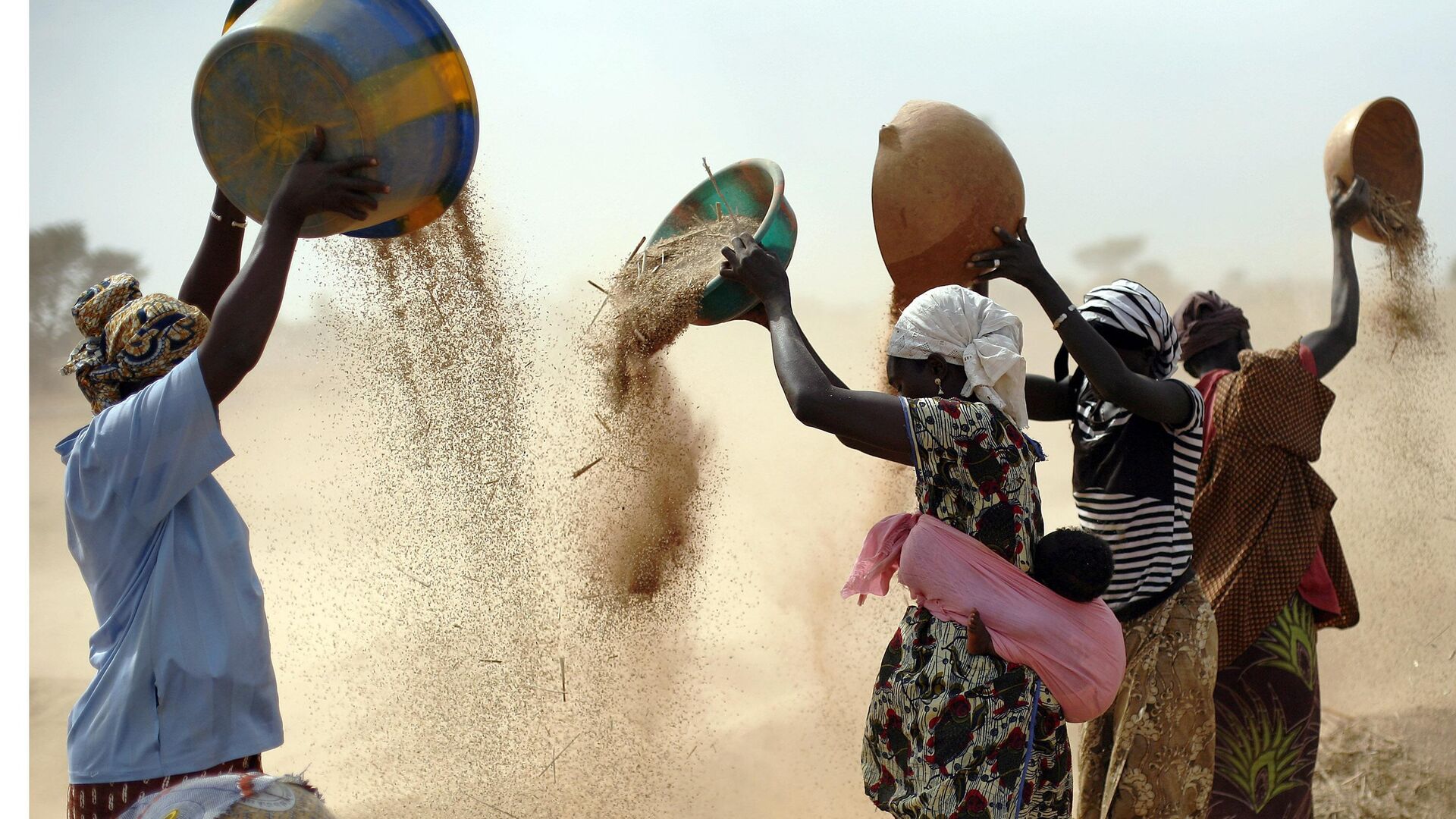Why Has Mali Suspended Grain Exports?
16:01 GMT 28.12.2022 (Updated: 07:13 GMT 29.12.2022)

© AP Photo / Jerome Delay
Subscribe
Bamako has suspended its grain exports due to supply difficulties. The decision seeks to contain prices and prevent a shortage associated with the reduced winter harvest, a Malian journalist told Sputnik. More generally, Africa is facing a shortage of Russian grain due to sanctions.
Mali has decided to halt grain exports temporarily to avoid a possible shortage and to keep prices down, said Moussa Naby Diakite, managing editor of the newspaper L'Élite, in an interview with Sputnik.
This decision comes at a time when winter harvests are down and prices are up.
On top of that, the Ramadan period is approaching, a time which generates scarcity not only for grain, but also for basic products in general on the market. This encourages inflation, the Malian journalist explained.
"If, for example, we keep all the products in our land, it will facilitate distribution throughout the country, and it will allow the government to control the food prices," he said.
Impact of Anti-Russian Sanctions
Even if the Western restrictions imposed on Russia do not officially affect the food industry, they do disrupt logistical and financial chains, a factor that causes supply difficulties, especially for poor countries.
Africa, which imports a lot of Russian wheat and other grains, has been affected:
"Wheat is the African staple food par excellence for the production of the bread we eat in the morning and evening, and we suffer when there is no more wheat and the price of bread rises," Moussa Naby Diakite said.
This food shortage is causing prices to soar, which “has a strong impact on households.”
In order to put an end to the numerous shortages, the continent must solve the problem of the lack of agricultural means:
"African governments are turning to agricultural development through mechanization policies, through policies of large-scale crops," the journalist said.
Next, there is the question of exporting their best products while Africans are content with importing "everything of lesser quality":
"With the Office du Niger, Mali produces quality rice and fertilizers. But you can see that this rice is usually found in France or Europe. On the other hand, we consume broken long rice, which is not of good quality, unlike what we produce. We have a shortage of what we produce in large quantities and of good quality," he said.
Africa and BRICS
BRICS [Brazil, Russia, India, China and South Africa] currently includes only one African country, but could soon expand with the possible membership of Algeria. The Algerian president announced this intention in November. According to the journalist, the decision could bring benefits not only to the country of the fennecs, but also to its African partners:
"The Algerian president is right and Algeria is gaining ground by opening up to other African countries with the desert road that will link six countries like Mali, Nigeria, and Niger. Algeria today is extending its power in the agricultural, oil and military fields. They are right to do so, because it allows total independence," Diakite noted.
In detail, cooperation with the BRICS would allow Africa to develop and mitigate the problem of "huge loans" charged by other governments. The organization is a "gathering of major [players], and it should perhaps be expanded to other African countries for a win-win cooperation and respect for the interests of each other," he argued.
"Russia, China and India are gaining more and more admirers, supporters of the political issues of liberation, independence and respect," he concluded.



